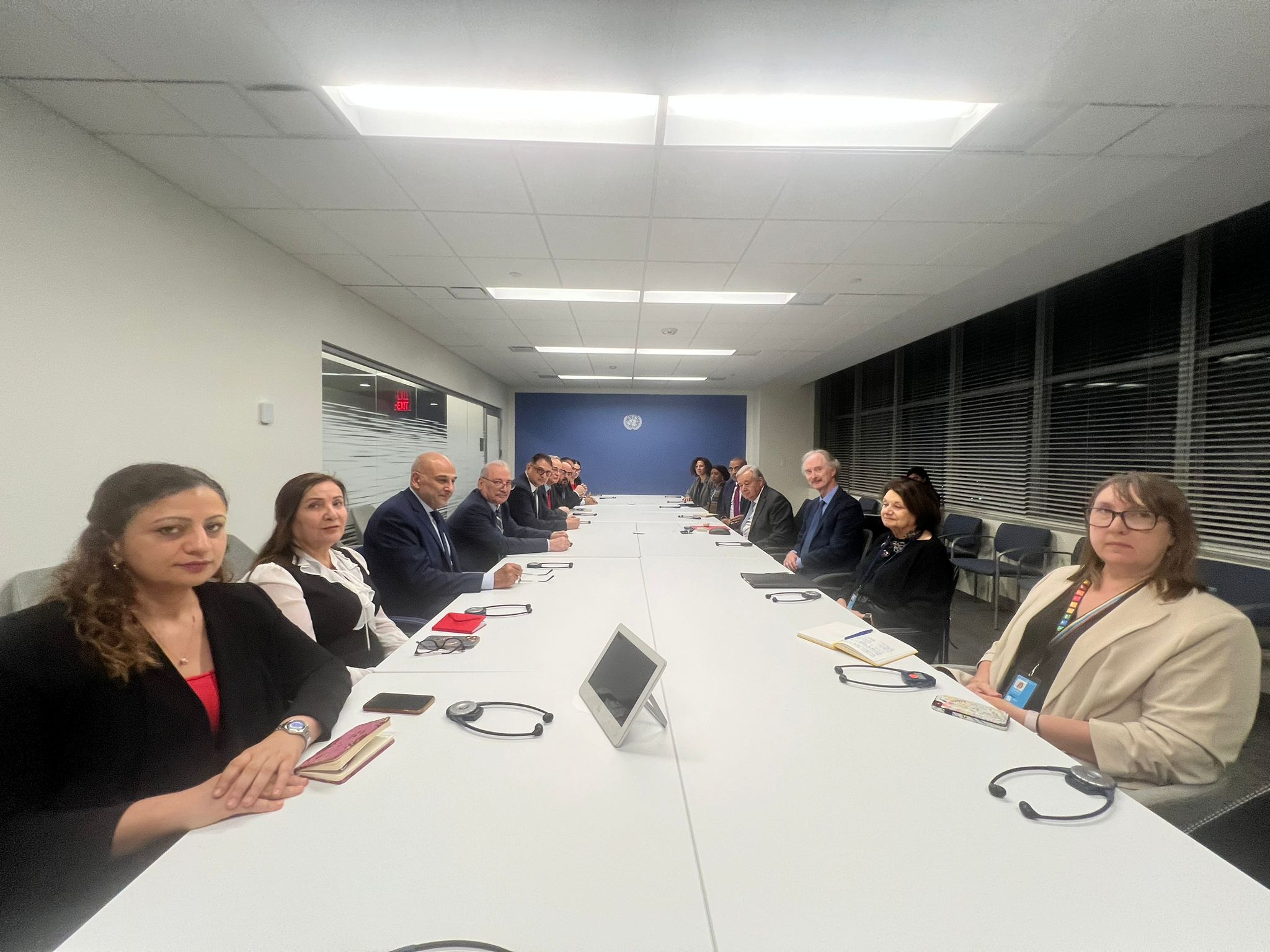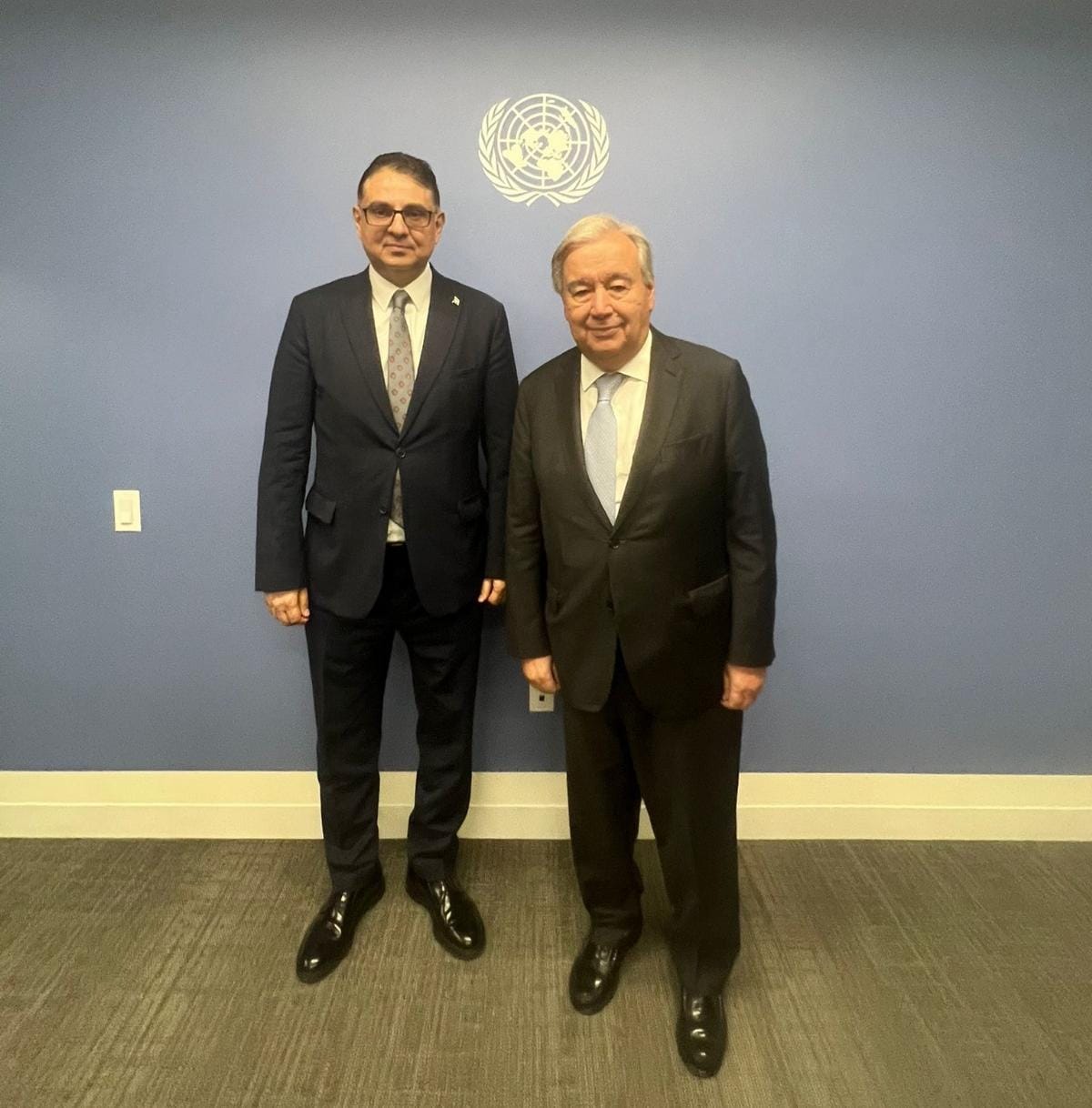Syrian Negotiation Commission Delegation Meets with UN Secretary-General
Dr. Jamous: The Syrian People Look Forward to a UN Role in Implementing Resolution 2254

September 29, 2024
The Syrian Negotiation Commission, led by its president Dr. Badr Jamous, held a significant meeting with UN Secretary-General Mr. António Guterres on Saturday at his office in New York, marking the conclusion of their visit to the city. The discussions focused on various critical aspects of the Syrian conflict, emphasizing the urgent need to advance the political solution and establish binding mechanisms for the implementation of international resolutions.
In attendance were the UN Special Envoy for Syria, Geir Pedersen, and a delegation accompanying Guterres. The meeting facilitated a comprehensive exchange of views on the current developments surrounding the Syrian issue, including the impact of international dynamics on the situation. Both sides underscored the importance of supporting the UN’s efforts toward a political resolution and highlighted the necessity for clear, binding mechanisms for all parties involved, along with a definitive timeline for the political process, particularly concerning the implementation of Resolution 2254.
Dr. Jamous articulated the ongoing challenges posed by the Syrian regime, which has consistently attempted to obstruct the political solution, delay the implementation of international resolutions, and evade its responsibilities toward the Syrian people. He stressed that the Syrian issue must remain a top priority for the UN Security Council, given its profound implications and the ongoing suffering of the Syrian populace due to the actions of the regime and its allies.
He emphasized that the Negotiation Commission has always been responsive to international resolutions, striving for their implementation through effective mechanisms and timelines. Despite these efforts, the regime has continuously evaded accountability, displaying a troubling indifference to the scale of the humanitarian crisis and refusing to meet its obligations.
Dr. Jamous also addressed the plight of millions of displaced Syrians and the conditions faced by Syrian refugees in host countries. He called on all nations to uphold international laws related to refugees and human rights, ensuring the safety and dignity of Syrian refugees. The commission firmly rejects any forced repatriation, as Syria remains unsafe by all standards, exposing returnees to various and significant dangers.
Furthermore, he raised the critical issue of arbitrarily detained and forcibly disappeared individuals, describing it as a non-negotiable matter that should have been resolved long ago. The Syrian regime’s refusal to address this issue, along with its continued detention of individuals without trial and its failure to disclose the fate of tens of thousands of missing persons, remains a significant obstacle to peace.
In conclusion, Dr. Jamous reiterated the futility of attempts to rehabilitate the Syrian regime. He asserted that any effort to normalize relations or address the Syrian conflict outside the framework of international resolutions is unacceptable and will only lead to further tragedies, destruction, and humanitarian suffering, as well as increased waves of displacement and asylum-seeking across the globe.
Media Office

